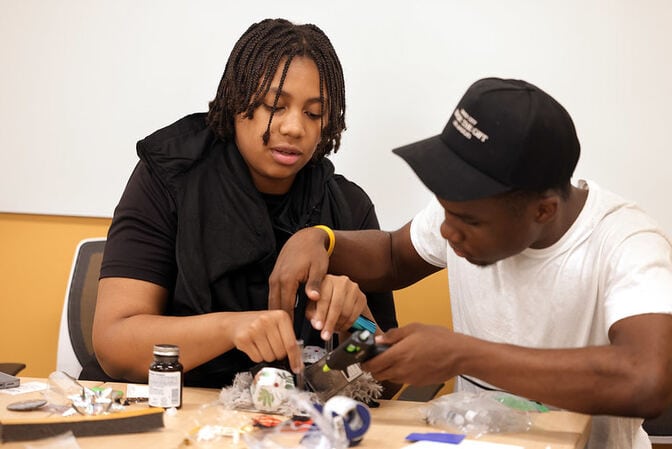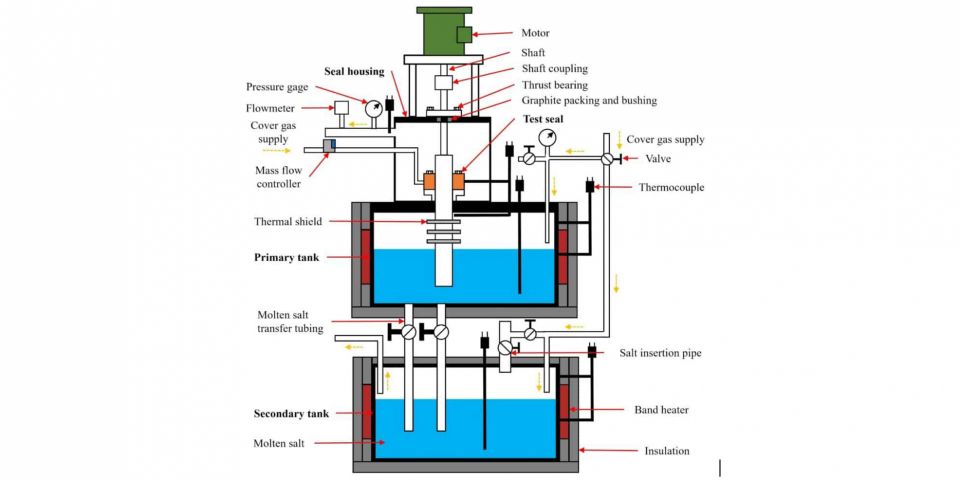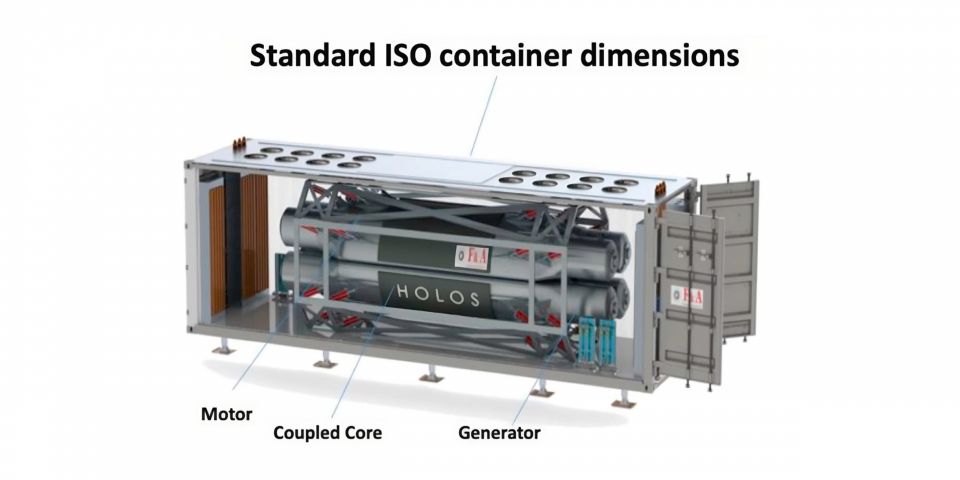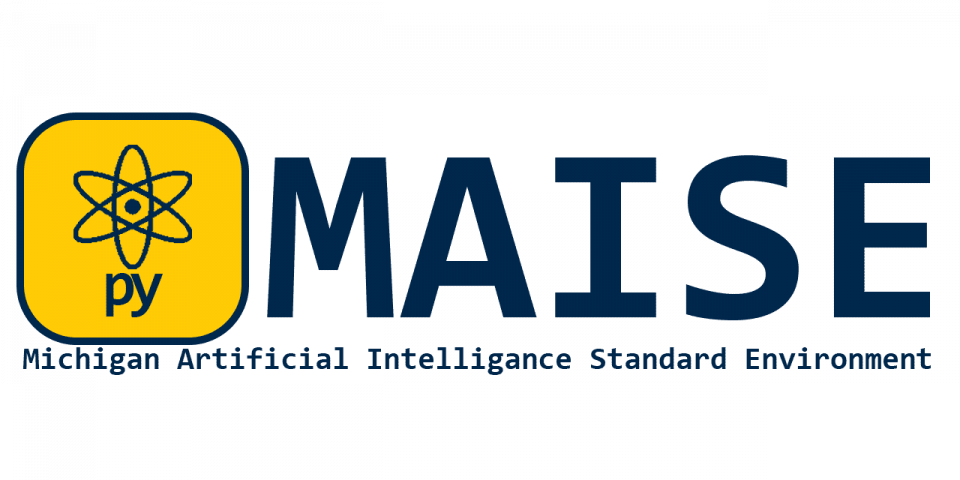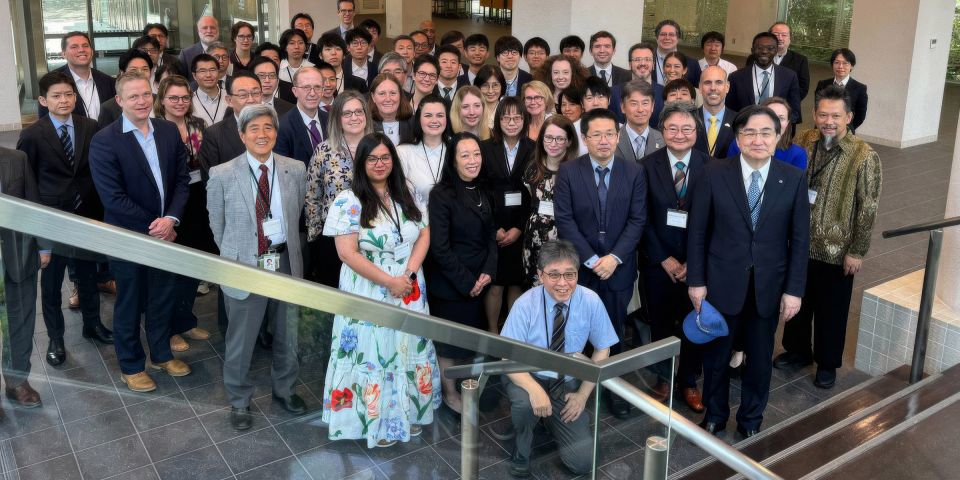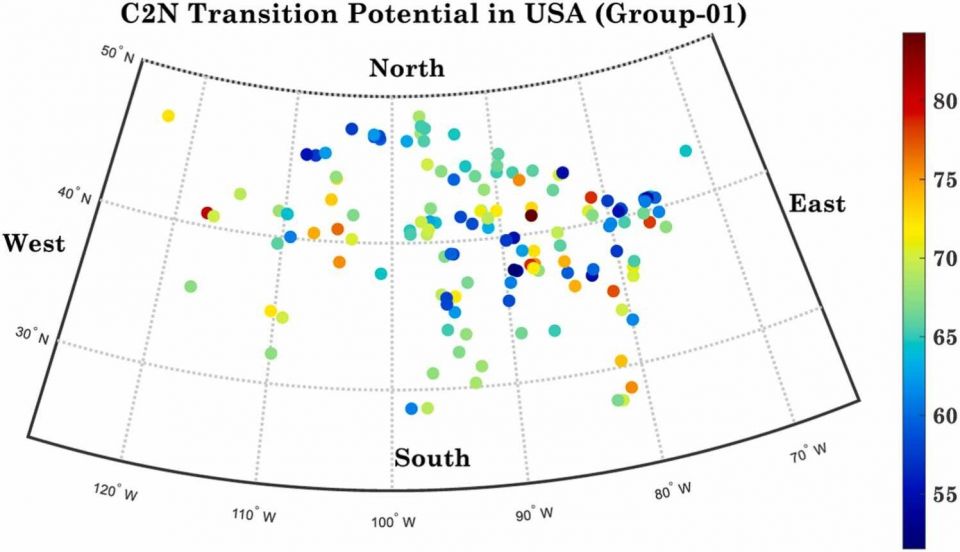High school students Madison Henley of Detroit, Mich. (left) and Simon Fadare of Atlanta, Ga., work on a project to imagine and build a future nuclear energy device. (Photo: Brenda Ahearn/Michigan Engineering)
The first Harper Academy 4 Future Nuclear Engineers was held recently at the University of Michigan. The four-week program provided eight rising high school seniors with classes in nuclear engineering fundamentals, mathematics, technical skills, design, community engagement, and college preparation. While taking the course, the students stayed at Bursley Hall on the university’s Ann Arbor campus.
Fun activities: The program included a number of special and enjoyable activities to engage students’ interest in nuclear engineering. They toured several labs on campus that are used by the university’s Department of Nuclear Engineering and Radiological Sciences, which cohosted the program with Charles Harper Charities. A workshop helped the students learn how to approach community members about the design of a nuclear facility. A visit to a local supply reuse center allowed the students to examine materials that could be used to make nuclear energy devices.
The students also visited Unit 1 of the Enrico Fermi nuclear power plant in Monroe, Mich., as well as the Facility for Rare Isotope Beams at Michigan State University in East Lansing. They also heard from several speakers, including Uchenna Ezibe, the American Nuclear Society’s senior manager of STEM programs.
Positive reaction: The students had positive things to say about the program. Jalen Petty, who attends Heritage High School in Georgia, said, “Since I know more about nuclear engineering [after taking the course], I feel safer around it. It is more important to me knowing now that it can be safer for the environment.”
According to Simon Fadare, who attends Central High School in Maryland, “The in-person lectures and actually having real professionals in the nuclear industry taking time out of their day to present speeches was just a priceless experience. I couldn’t have asked for anything else.”
CHC’s background: The Harper Academy 4 Future Nuclear Engineers is a program of Charles L. Harper Charities (CHC), which was the subject of an article in the April 2024 issue of Nuclear News. The charitable organization was established in November 2023 by Jeffrey Harper, Charles Harper’s son and a Maryland-based entrepreneur and international energy executive. The younger Harper is president of ZJ NorthStar Project Developers, which develops small modular reactors and was previously vice president of international market development for X-energy.
The goal of CHC is to help young people get into nuclear engineering and prepare for college through a summer program offered between their junior and senior years of high school. The program covers STEM subjects and also includes tours of nuclear facilities.
The summer 2024 course at the University of Michigan was the first such program offered by CHC. It is expected to return to UMich in 2025. Additional CHC classes at other universities are also in the works.
Harper had summarized for Nuclear News his vision for CHC: “The Charles L. Harper Charities organization creates programs that inspire ‘Awareness, Advancement, and Achievement’ in STEM fields for historically excluded and economically challenged young adults under age 30. CHC’s motto of ‘Finish Well’ has been a life theme for my father.”
